“Baka” is the most common Japanese swear word. The baka meaning usually translates to foolish or stupid. But it can take on a whole range of meanings depending on context, relationship, and other factors.
In kanji, it’s usually written baka 馬鹿. When separated, those kanji mean uma 馬 (horse) and shika 鹿 (deer). These kanji were selected because of their sounds “ba” and “ka.” But there are several other combinations that would have worked. Like 母娘 (Mother-Daughter), 馬娘 (Horse-Daughter), 破家 (Broken-House), 莫迦 (Trillions-Beautiful voice), 馬稼 (Horse-Earning money), and 跛家 (One foot-House). Now that’s baka!
Baka is also commonly written in Hiragana as ばか or in Katakana as バカ. On the internet, it is sometimes written as ヴァカ or βακα.
Although the baka meaning can take many forms, there is certainly a negative connotation attached to it (it is a swear word after all). So it’s not typically used in public or legal situations.
For example, if you say “baka” to a subordinate in your company, you may have to spend time in HR watching videos on an old VCR. Use caution before pulling this puppy out of your Japanese language arsenal.
So, we are going to study this baka word so as not to be 馬鹿 by misusing it.
Baka Etymology
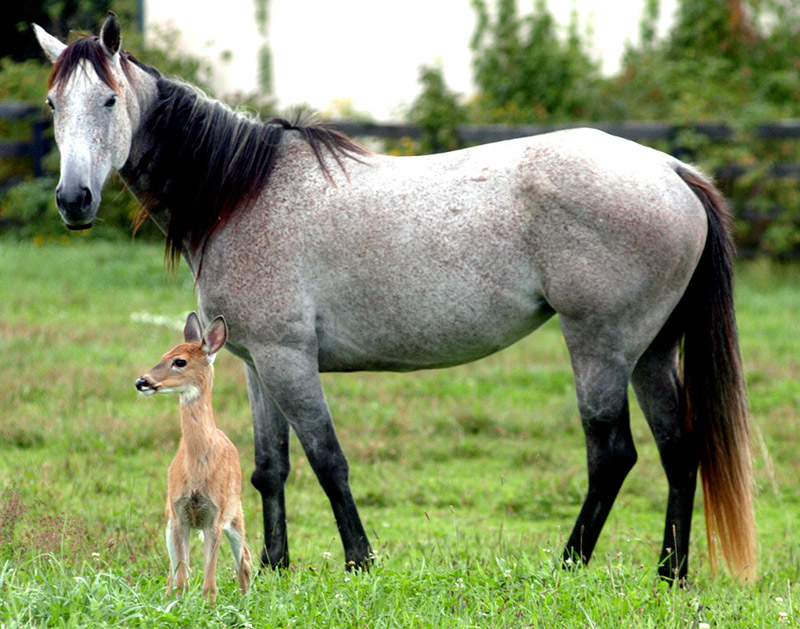
There are several theories on the origin of the baka definition, which regrettably means we can’t be sure which one is correct. The oldest written usage of baka is in Taiheiki (a Japanese historical epic said to have been written by Kojima Houshi in the 1370s). At the time the word was not baka 馬鹿 but bakamono 馬鹿者 (stupid person). So the theories which take into that 馬鹿者 was the first usage of the term are more believable than others. There’s a multitude of interesting theories but today we’ll focus on just five of them.
#1 A Story from the Shiki (The Records of the Grand Historian from China)
During the era of the second emperor Kogai of the Qin dynasty, his eunuch Choko planned a rebellion in an attempt to usurp his power. He wanted to find out which courtiers were on his side and came up with an idea. He brought a deer to the Imperial palace, offered it to the emperor and said, “I’ve brought you a very rare horse”. Understandably, the emperor got confused and asked, “Isn’t this a deer?”
With a divisive line drawn, Choko then moved towards the courtiers asking, “This is most certainly a horse, is it not?” Those who were afraid of Choko replied, “Yes, this is a horse” and those who did not fear him answered, “No, it’s a deer”. Choko later killed the courtiers who answered deer. From that, the phrase:
- 指鹿為馬
- Pointing at a deer, calling it a horse
arose to describe using power to insist that something is one thing though it is clearly another.
It’s believed that baka comes from this story and this theory is actually the most widely accepted. However, one inconsistency is that the ‘ka’ part of ‘baka’ is actually a Japanese reading and wouldn’t have been read this way in Chinese.
#2 The Sanskrit Word “Moha”
Another word that can be read as “baka” is the kanji 莫迦, which is from the Sanskrit word “moha”, meaning “ignorance” and “illusion”. It’s theorized that monks began using baka esoterically and it came into common usage later on. This theory was put forward by an Edo period Japanese scholar, Sadakage Amano, and is used in most major Japanese dictionaries, including the Kojien. However, some studies question this theory since “ignorance” wasn’t a baka meaning in Japanese when it was first used.
An interesting addition to this theory is that in Bengali, the official language of Bangladesh which has its origins in Sanskrit, the word “baka” means “stupid person”.
#3 Wakamono (Young People)
In Japanese wakamono 若者 means “young people”. In this theory, the “w” of wakamono was for some reason changed into a “b” when referring to young people as stupid and, thus, bakamono 馬鹿者 came into being .
Kunio Yanagida, the father of Japanese native folkloristics, said that the editor of Kojien, Izuru Shinmura, presented this theory but didn’t leave any documents supporting it when he died. So the truth of this theory is still uncertain. What is known, however, is that Shinmura was unwilling to accept the Sanskrit theory of “Moha” for the Kojien.
#4 Bankrupt Family
The word baka 破家 in the Zen Buddhist scripture means "a family bankrupted" and it’s said that bakamono 馬鹿者 came out of this to refer to a person as “someone that is so stupid that they could allow their family to go bankrupt”. This theory was presented by a professor at Tohoku university, Kiyoji Sato, and adopted by a Japanese dictionary Nihon Kokugo Daijiten 日本 国語 大辞典.
#5 The Family Name uma 馬 (Horse)
In Bai Juyi’s poetry anthology Hakushi Monju 白氏 文集, there is a poem about a wealthy Chinese family with the name uma 馬 who spend all their money on stupid things and eventually go bankrupt. It’s considered bakamono 馬鹿者 was born as a 馬家者, which can be broken down as ba 馬(Horse)-ka 家(Family’s)-mono 者(Person). This theory was presented by Osamu Matsumoto in his book “Zenkoku Aho・Baka Bunpu Kou 全国アホ・バカ 分布 考”.
How To Use Baka
The meaning of baka is so varied (as you've seen), it's no wonder that it's usage is equally complex. You can't just scream "ばか!" and expect it to be taken the same way by every person in every situation.
To better understand how and when to use this ultimate Japanese swear word, we've broken the baka usage into three parts.
Nuance
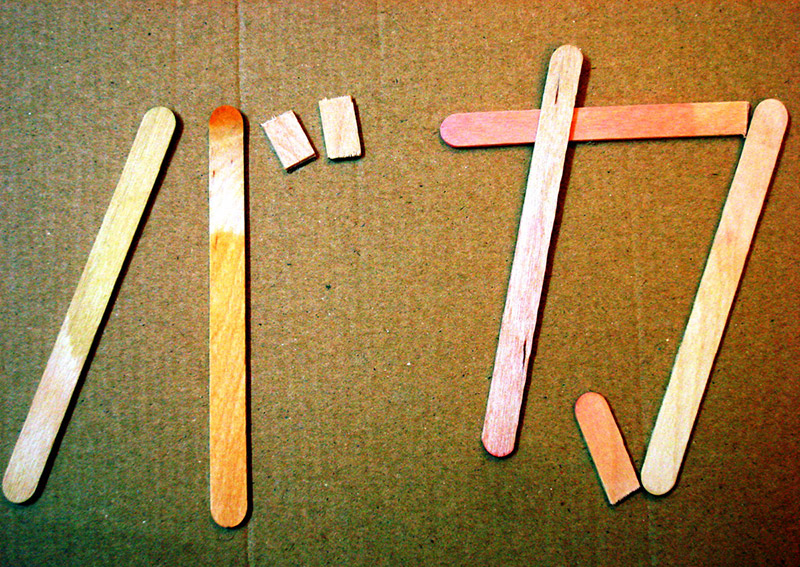
Though we can’t be sure how it came into being, we know that baka eventually emerged to take its place as the nasty little word we know and love today. That said, let’s go over how it’s being used presently and learn how to “mind your Ba’s and Ka’s”.
The often observed implications of the word are “insufficient knowledge”, “insufficient thoughtfulness”, “insufficient understanding”, or “abusing the stereotype”. The baka meaning changes depending on the person who says it, the person/object/situation it is directed towards, and the situation in which it is used.
I know that sounds confusing. With so many possibilities, surely you’ll have trouble knowing exactly when to use it. However, unlimited possibilities mean you pretty much can’t get it wrong. The beauty of the many nuances is that you can just blurt out ばか at any random time and people will automatically correlate the meaning most suited to the current situation. You (mostly) can’t lose!
Be aware though that its usage is quite different regionally. For example, in Kanto (Gunma, Tochigi, Ibaraki, Saitama, Tokyo, Chiba, and Kanagawa), baka is generally used for mild ridicule, whereas it’s the go-to word when you really want to curse someone out in the Kansai region (Mie, Nara, Wakayama, Kyoto, Osaka, Hyogo, and Shiga). Thus, it’s important to note that people take this word very differently depending on where they’re from.
If you know a bit of a certain dialect, you may have heard the synonym aho 阿呆, which is the most commonly used profanity in Kansai. Although both are very similar words, there are slight differences between them. Baka is often used when someone’s will or effort to understand is lacking, whereas aho is used when someone’s ability to understand is completely lacking. So aho is generally the more nasty of the two.
The place where one must practice the most discretion though, is Hokkaido. People from all over Japan have moved to Hokkaido so there is no way of immediately knowing which side of the Aho / Baka fence someone might fall on. The nastier of the two words may differ depending on the area of Hokkaido you’re in. Hokkaido-ans also have their own regional version of baka, which is Hankakusai はんかくさい or in the old dialect Takuranke たくらんけ, but more on that later.
Positive Meaning
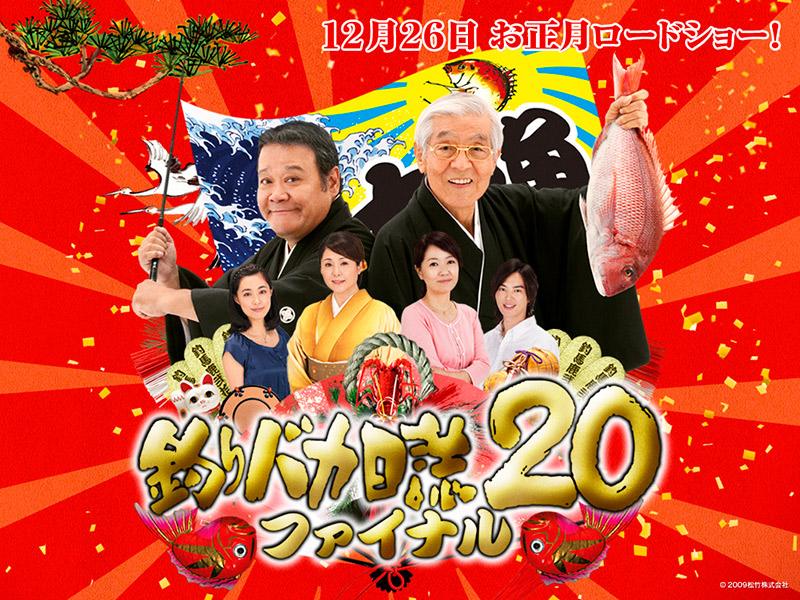
Baka is often used to mock someone, but it can also be used in a good-natured way. Like the English word “silly”, it could express stupidity, foolishness, and irrationality, but can also describe ridiculousness, an inebriated state, or even feelings of endearment for someone. If you tell that beautiful woman walking down the street or the handsome guy from accounting that they are baka, you’re not likely to get a phone number. But watching how the baka Japanese word is used between people can reveal the kind of relationship they share.
Someone who is really into something can also be called baka. In this case, “baka” means that you are so keenly interested and involved in something that your attention for other people or other things is lacking. For example, there is a famous movie called “Tsuri-Baka-Nisshi 釣りバカ 日誌” (Fishing Fool’s Diary) in which the main character is a salaryman whose top priority is fishing. This particular baka meaning is often self-appointed and sometimes denotes a sort of respect.
Some more examples of this usage are: yakyuu baka 野球 馬鹿 meaning someone who is really into baseball. If you are really into learning Japanese, you might call yourself nihongo-baka 日本語 馬鹿.
Baka can also be used for someone who works so diligently and purposefully towards a sole endeavor that they become a master of that one thing. For this type of baka 馬鹿, there is another expression, which is “guchoku no nen 愚直の 念”. Guchoku 愚直 means simply and stupidly honest and nen 念 refers to a sense or feeling. An example of this usage is the title of the manga Karate Baka Ichidai 空手バカ 一代(A Karate-Crazy Life).
Combination

The most common word paired with baka 馬鹿 directly translates as something you might have combined with the phrase “dummy” or “meanie” when you were three. Oo 大 (Big) is commonly added to the beginning of baka and is used when someone is being really stupid, or oobaka 大馬鹿 a “Big Stupid”.
This is also used when somebody goes a little kooky. Instead of using oo 大, young people often add geki 激 (Intense) or chou 超 (Very) which form to become gekibaka 激馬鹿 (Intensely Stupid) or choubaka 超馬鹿 (Very Stupid). It’s not the exact same pronunciation as the character Chewbacca, but it’s good way to help you remember.
Another common word paired with baka 馬鹿 is bakayarou 馬鹿野郎 (stupid man). I supposed the equivalent in English would be something like “dude”, as yarou 野郎 is slang for ‘man’. However, unlike dude, it can take on a bad meaning like jerk, schmuck, or other more inappropriate names. Combining baka 馬鹿 with such a word can come off pretty strong, but if you’re through the roof bakayarou 馬鹿野郎 is not strong enough. For intense situations you need the big guns.
If you add oo 大 in front like oobakayarou 大馬鹿野郎 (Incredibly stupid person) then you’ll definitely cut the offending person down to size.
Sometimes, yarou 野郎 is replaced with a neutral word, such as mono 者 (person), or with a more nasty word like tare たれ. When you add ko 小 (small) instead of oo 大 in front of baka 馬鹿, as in kobaka 小馬鹿, you get the baka meaning of ‘to look down on someone’.
Baka Meaning Examples
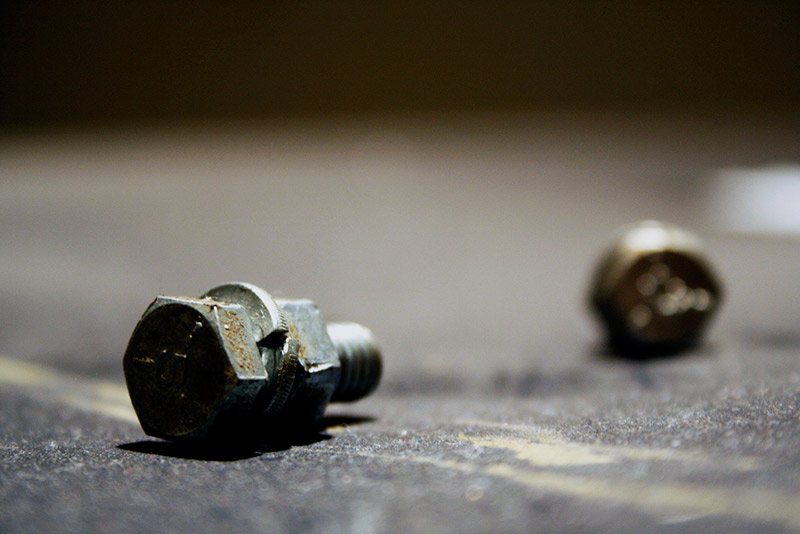
To get a better idea of when and where you should use each instance of baka, I’ve put together some situations so you use the right baka at the right time. Check out each example sentence and it baka translation.
#1. To rail at someone who made a mistake or did something stupid.
- ばか!
- ばかもの!
- ばかやろう!
#2. To regret that you or someone else did something stupid.
- 馬鹿なことをした
- I/You/He/She/They did such a stupid thing.
In this case, you can add a suffix like 馬鹿なことをしたよ(yo), 馬鹿なことをしたな(na), 馬鹿なことをしたね(ne), 馬鹿なことをしたもんだ(monda) to the end for adding some more specific nuance. Read our explanation of the particle ne ね to understand what kind of meaning it will add.
#3. To look down on someone who doesn’t know something you consider to be common knowledge.
- 〜も 知らないの? 馬鹿だね
- You don’t even know ~? You are such a simple minded person
- テストで0 点 取ったの? 馬鹿だな
- You got a score of 0 on the test? You must be pretty dumb.
#4. Someone who can’t think objectively or rationally about something.
- “ 親馬鹿– 親 means parents and combines with baka to become 親馬鹿 means ‘overly-fond parents’. In this case, a parent loves their child/children so much that they can’t think objectively or rationally when it comes to them.
#5. Someone who is only well learned in one subject and lacks common knowledge. In this usage, the baka meaning is similar to otaku.
- あいつは 数学 馬鹿だから。
- He is crazy about math.
- あいつは 野球 馬鹿だから。
- He is crazy about baseball.
- あいつはサッカー 馬鹿だから。
- He is crazy about soccer.
#6. Something that is useless or broken.
- ネジが 馬鹿になる。
- The screw loosened and won’t fasten anymore.
- 嗅覚が 馬鹿になる。
- Your sense of smell has become stupid.
#7 Used as a prefix to express something extraordinary.
- 馬鹿正直
- Super honest
- 馬鹿デカイ
- Super big
- 馬鹿騒ぎ
- Party out
- 馬鹿受け
- Super funny, Very popular
- 馬鹿売れ
- Sold very well
Baka Dialects
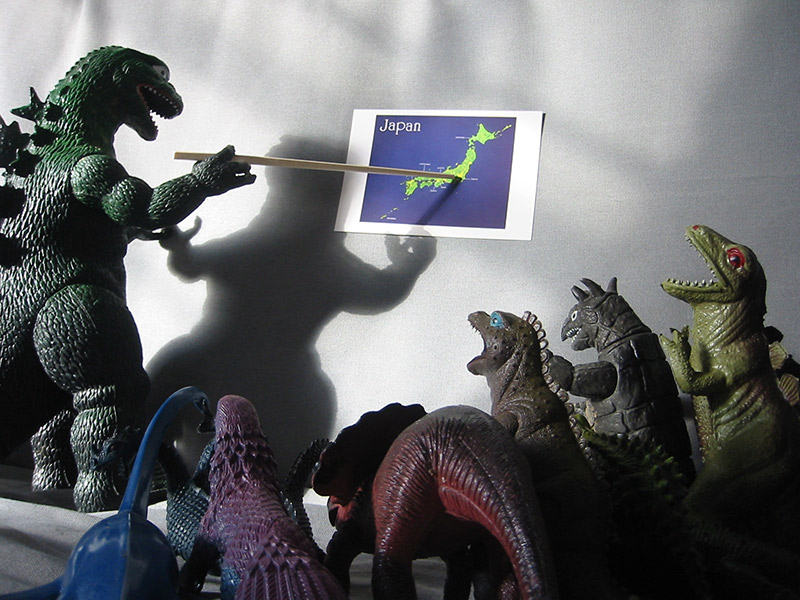
I briefly mentioned the Hokkaido dialectal differences for baka earlier, but why not learn each prefectural dialect, as well? Some places just use baka ばか and don’t have dialectical variation, but most have fun ways to call people stupid. (Note: Some regions in the prefecture may use different expressions. The Japanese dialects are not perfectly divided by the prefectural boundary.)
- Okinawa: furaa ふらー
- Kagoshima: baka ばか
- Miyazaki: shichirin しちりん
- Oita: bakatan ばかたん
- Kumamoto: anpontan あんぽんたん
- Nagasaki: baka ばか
- Saga: nitohasshu にとはっしゅ
- Fukuoka: anpontan あんぽんたん
- Kochi: ahou あほー
- Ehime: ponke ぽんけ
- Kagawa: hokko ほっこ
- Tokushima: aho あほ
- Yamaguchi: baka ばか
- Shimane: daraji だらじ
- Tottori: darazu だらず
- Hiroshima: baka ばか
- Okayama: angou あんごー
- Wakayama: aho あほ
- Nara: aho あほ
- Hyogo: dabo だぼ
- Osaka: doaho どあほ
- Kyoto: aho あほ
- Shiga: ahou あほー
- Mie: ango あんご
- Gifu: tawake たわけ
- Aichi: taake たーけ
- Shizuoka: baka ばか
- Fukui: aho あほ
- Ishikawa: dara だら
- Toyama: dara だら
- Niigata: baka ばか
- Nagano: nukesaku ぬけさく
- Yamanashi: nukesaku ぬけさく
- Kanagawa: baka ばか
- Tokyo: baka ばか
- Chiba: baka ばか
- Saitama: baka ばか
- Gunma: baka ばか
- Tochigi: usubaga うすばが
- Ibaraki: dere でれ
- Fukushima: baka ばか
- Yamagata: anpontan あんぽんたん
- Akita: bakake ばかけ
- Miyagi: hondenasu ほんでなす
- Iwate: doboke とぼけ
- Aomori: honjinashi ほんじなし
- Hokkaido: hankakusai はんかくさい
Which one is your favorite? Mine is nitohasshu にとはっしゅ in Saga. It sounds cute, doesn’t it?
We’re All Baka!
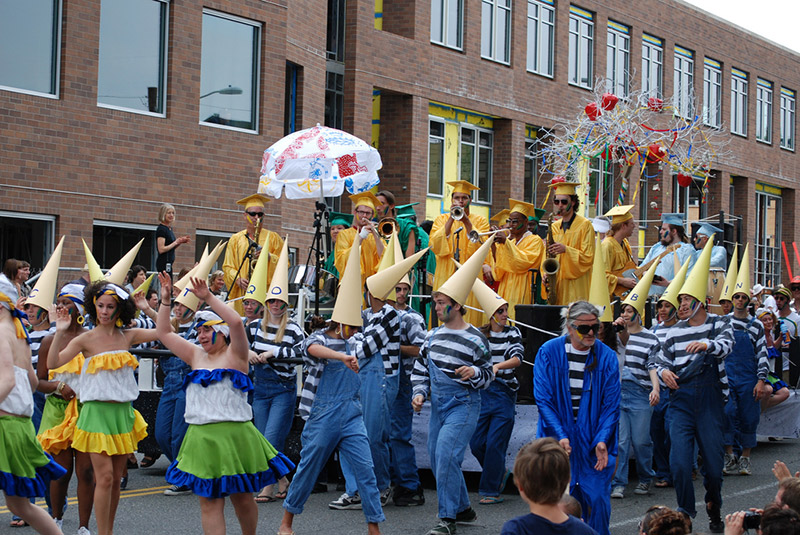
Harlan Ellison once said “the two most common elements in the world are hydrogen and stupidity.” With so many ways to be stupid, we humans need just as many ways to call it out. So study up on these variations of “baka”, so you’re ready for whatever dumb situations life throws at you, or so you can accurately describe yourself when you absent mindedly find yourself in baka whirlpool of your own making. Whether talking about your love of fishing or blowing off some steam with some casual Japanese swearing, be sure to use baka 馬鹿 responsibly, effectively, and maybe even a little bit foolishly.
